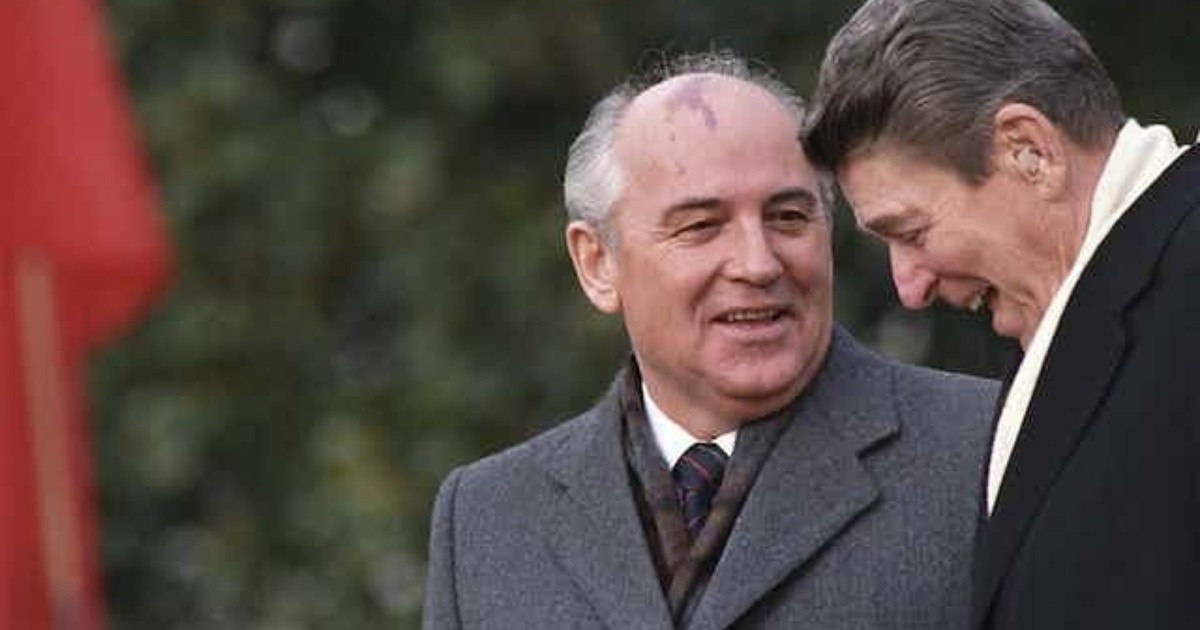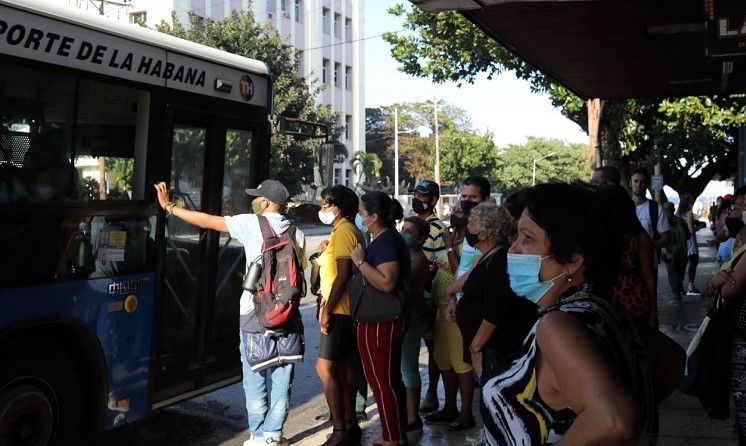Few world leaders have had a more relevant, but at the same time more tragic, profile than Mikhail Sergeyevich Gorbachev, whose death at the age of 91 she was announced by the Russian state media.
In a way, it is possible that Gorbachev, as the last leader of the USSR, was probably the only truly human one. And it is equally sobering that Gorbachev has passed away at a time when political repression in his native Russia has once again suffocated, and the shadow of conflict in Europe, which cast a shadow over the region during the Cold War, has come true. .
These were the consequences that Gorbachev strove to avoid. He was a man who facilitated the opening of Soviet society, fostering hope and debate instead of repressing them. He tried to revitalize the USSR, foreseeing a coming century of peace in which the Soviet Union would join a “Common European Home”.
The achievements
Gorbachev’s achievements were numerous. Among them, the negotiation of arms reduction treaties with the United States during various summits with US President Ronald Reagan. His suggestion to Reagan in Reykjavik that the United States and the USSR should eliminate nuclear weapons shocked the US foreign policy establishment, who initially saw Gorbachev as little more than a junior version of the gerontocrats he had happened.
After initially hesitating, he admitted the 1986 Chernobyl disaster, assuming that doing so would weaken him both at home and abroad. in 1988 unilaterally withdrew Warsaw Pact forces in Europe without waiting for a reciprocal agreement with NATO member countries.
Early in his term, he had developed a personal relationship with Margaret Thatcher, who told the BBC that she was a man with whom the West could dialogue. He withdrew Soviet forces from Afghanistan in 1988-9, admitting that his presence was a violation of international law.
He refused to intervene in many of the spontaneous demonstrations aimed at overthrowing the communist leaders entrenched in the Warsaw Pact, pressuring them not to use force against their own citizens.
But perhaps most notably, he was the chief architect of a grand plan to revitalize the economy of the Soviet Union (by perestroikaor restructuring), your company (through the glasnostwhich means openness) and its policy (demokratizationor democratization).
the ascent
During Gorbachev’s inconspicuous rise through the ranks of the nomenklatura From the Soviet elites, there was little indication that he would come to champion such a radical program. Born in 1931 as the son of peasants from Stavropol, a region that suffered the catastrophic impact of the forced collectivization of agriculture, Gorbachev followed the established path to influence Soviet policy.
He joined the Komsomol, the Communist Party’s youth league, and was accepted to study law at Moscow State University. After becoming first secretary of Stavropol, and later party chief in the province, he began to cultivate an image as a moderate reformer, offering bonuses and private plots to farmers who exceeded crop production quotas.
Gorbachev’s political career could have ended there. But, like many successful political elites, he benefited from the networks of power, as both the Communist Party’s chief ideologue, Mikhail Suslov, and KGB chief Yuri Andropov, saw him as a valuable new face for a increasingly sclerotic Soviet leadership.
Presenting himself as an energetic fighter against corruption, Gorbachev was promoted to the Central Committee of the Party and then to the Politburo, the main political body of the USSR. When the General Secretary of the Communist Party, Leonid Brezhnev, died in 1982, Andropov took over the reins and gave Gorbachev increasing control over the economy. He was effectively the second most powerful figure in Soviet politics until he ended up taking over as General Secretary in 1985, following Andropov’s death a year earlier and his successor Konstantin Chernenko’s.
Although Gorbachev was revered in the West as the man who ended the Cold War, he was vilified in his country as a foolish leader who caused something he didn’t even intend: the collapse of the USSR.
And although in Europe and the United States he will be remembered above all as one of the great peacemakers of history, the Russians saw in Gorbachev an entirely different side, the personification of instability and decline.
The fall of the USSR
When the communist dominoes of Eastern Europe fell in 1989, culminating in the tearing down of the Berlin Wall in November and the defection of a large part of East Berlin’s workforce to the West overnight, the USSR had lost its empire. It was also in the process of losing its unifying national idea.
The main reason is that Gorbachev’s social reforms were too successful, while his economic reforms were a tremendous failure. The perestroika it only served to reveal how deeply inefficient and corrupt the Soviet command economy had become. It began with an economic acceleration program that gradually morphed into a plan to change the Soviet economy from state control to the market in 500 days. To push through his reforms, Gorbachev relied on a new cadre of young technocrats, while many representatives of the old guard remained in positions of power.
Campaigns against alcoholism led to his being publicly derided as the “secretary of mineral water”, and his wife Raisa’s expensive tastes for Western clothing became the object of popular anger. The gap between the economic results and the population’s ability to criticize them grew, but Gorbachev did not react. In 1990, he intervened to quell civil unrest in Baku and blockaded Lithuania, which had voted for independence.
As Gorbachev struggled to hold the USSR together, the Soviet old guard launched a hard-line coup in August 1991, placing Gorbachev under house arrest in his villa in the Black Sea resort town of Foros. Boris Yeltsin, leader of the Russian Federation, became the face of the resistance, emulating Lenin by getting on a tank and demanding Gorbachev’s release as well as free and fair elections. The coup d’état failed when the Russian army refused to fire on the demonstrators.
Gorbachev returned to Moscow, but as a diminished figure, resigning as Secretary General of the USSR and eventually as its President, after the members of the USSR negotiated the end of the Union Treaty and the beginning of their own state sovereignty. . As president of Russia, the main component of the Soviet Union, Yeltsin inherited the USSR’s seat on the UN Security Council and, eventually, its entire nuclear arsenal.
Gorbachev’s tragic legacy
After losing power, Gorbachev initially ran in the Russian presidential election (without attracting more than a fraction of the vote), wrote books and memoirs, and later, gradually withdrawing from public life, went so far as to express his regret for how the story unfolded. At first, Gorbachev praised Putin’s ability to unite Russia, but, as the Russian journalist revealed Alexei Venediktov in 2022, he was bitterly disappointed that Putin had destroyed everything he had striven to create.
Ultimately, Gorbachev’s tragedy was his misguided confidence in the Soviet economy, and that he mistook the desire for national self-determination of the people of the USSR for the will to revitalize the Soviet idea.
Yet his abiding faith in enlightened progress and his willingness to take risks to achieve it stands in stark contrast to the caricature that Russia today has become, celebrating what divides us rather than what might unite us.
Regrettably, Gorbachev’s humanism, imperfect as it was, has no place in Vladimir Putin’s Russia, which has turned its back on modernity, cultivating a culture of victimhood and glorifying Russian chauvinism in its cynical pursuit of personal power.
Like other failed reformers in history, Gorbachev’s main legacy is to remind us of what could have been, but was not.
matthew sussexFellow, Strategic and Defense Studies Centre, Australian National University
This article was originally published on The Conversation. read the original.















